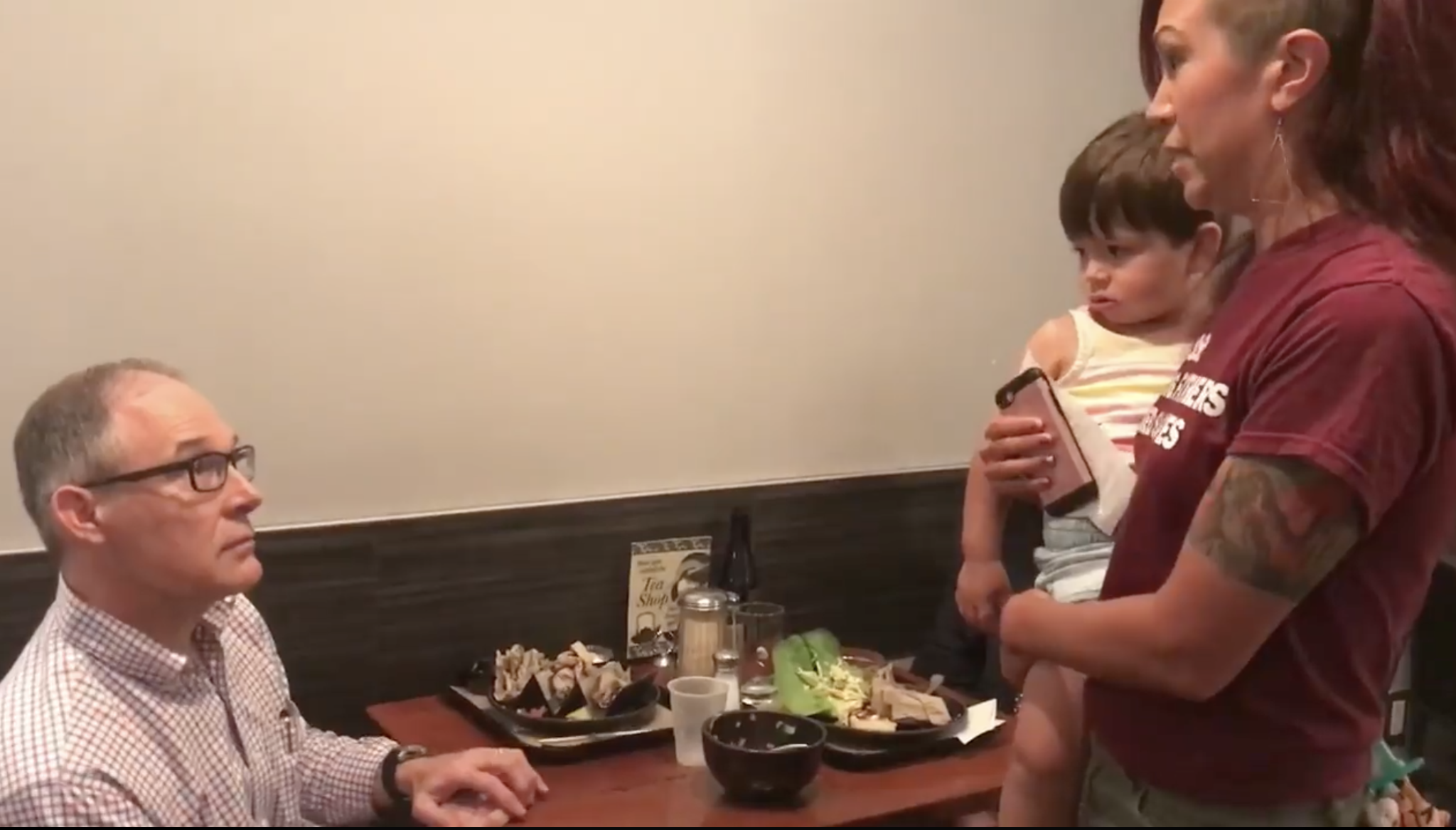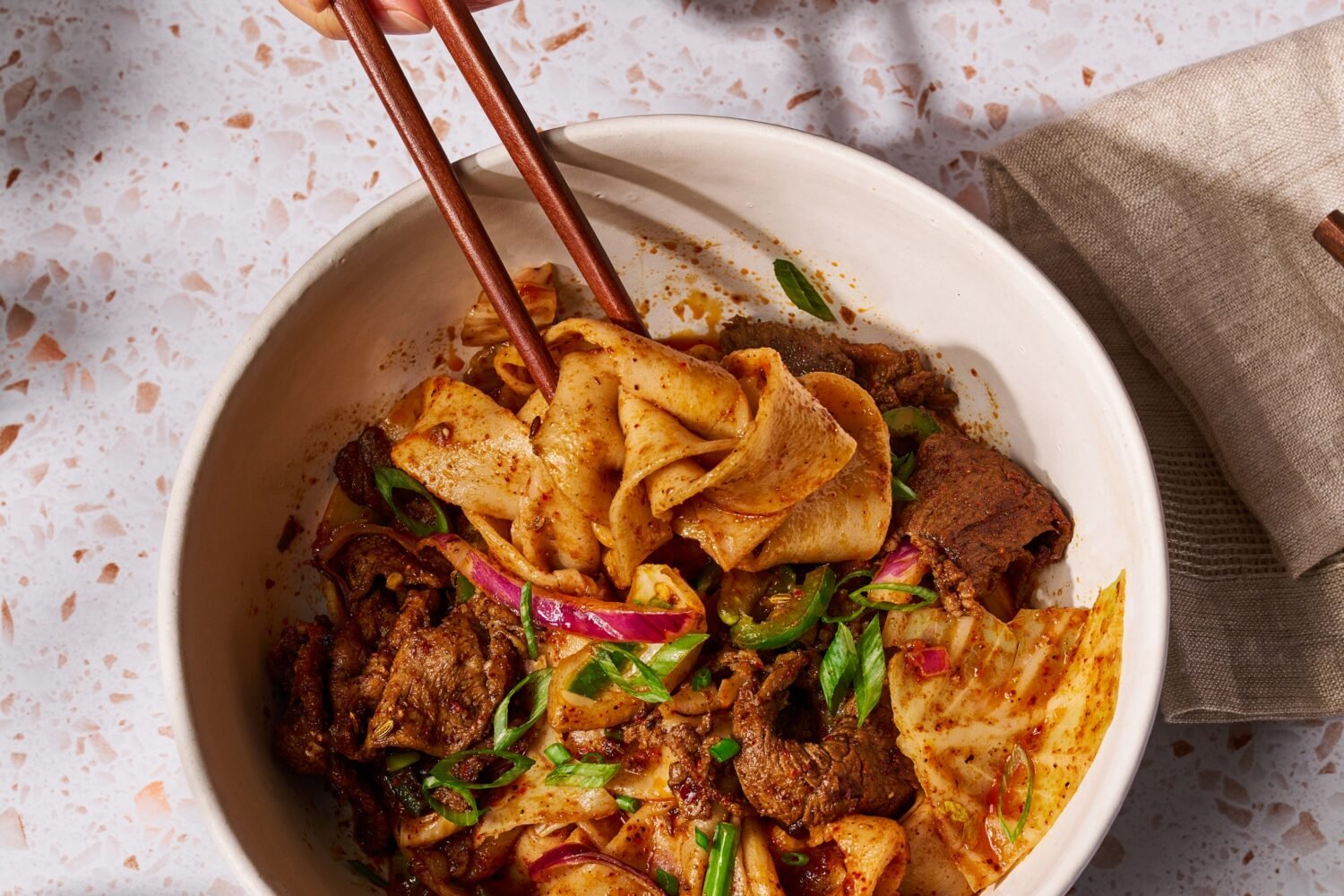Here’s the entirety of a very nice message that made its way to my inbox yesterday: “Bitch you are the ‘food editor’ so stick to food and stay the fuck out of politics.”
I wish I could say this is an anomaly. In fact, my correspondent is far from the first person to look up my email address in order to watchdog the boundaries of my newsroom coverage. “Just what you want to hear from the food editor. Political opinions…,” one guy tweeted when I commented on Trump not venturing out much to DC restaurants. “Food editor..lol,” another dismissed when I wrote about a mom confronting Scott Pruitt at Teaism.
Basically, anytime our food content intersects with national politics, and especially the Trump administration, someone is there to ask why we can’t just write restaurant reviews and share recipes.
And it’s not just me whose alleged beat-straying has drawn unwelcome attention. It happens to a lot of fellow food journalists—particularly women. (There’s a strong whiff of “your place is in the kitchen” about the whole thing.) The Washington Post‘s excellent Maura Judkis recently sounded off on Twitter about the “stick to food” emails she gets from readers anytime she writes about culinary-world sexual harassment scandals, racial issues, or immigration policies. After a recent piece about chefs Dominique Crenn and Nancy Silverton grappling with the #MeToo movement, one reader told Judkis her story belonged in the news section, not the food section. “If [Crenn] is as good as you seem to imply, then do an article about her food career. I would appreciate it very much (the picture of the Monterey Abalone looked exciting. Why not a recipe?,” the reader wrote. To which Judkis publicly responded, “I have no idea how to make Monterey abalone! But I do know how to find stories that I think are important. I’ll leave the abalone to Dominique Crenn.”
The New Yorker’s food correspondent, Helen Rosner, has also been repeatedly harassed for daring to weigh in on political issues—which is, in fact, the very writing that makes many of us want to read her. “It’s been a minute since a racist told me to stick to food. Had almost forgotten how lovely it feels,” she tweeted back to one detractor in June.
I know they say ‘don’t feed the trolls,’ but this line of thinking has become so pervasive that it’s time we go over some basics.
When immigrants farm your food, cook your meals, and clean your plates, that’s politics.
When trade tariffs affect the price of your whiskey or your fried chicken sandwiches, that’s politics.
When the President is involved in lawsuits with celebrity chefs, that’s politics.
When you have to save a little extra to eat out because of changes in minimum wage law, that’s politics.
When restaurants become battlegrounds for protesting Trump officials, that’s politics.
Essentially, if you’ve ever put anything in your mouth, chewed, and swallowed, politics is in some way involved. Exactly how it’s involved is something we all need to unpack and prod more.
I’ve always said that as a food writer, I rarely write about what’s on the plate. Reviews and recipes are great, but they don’t exist in a vacuum. Food is business, economics, environment, art, culture, history, crime, and of course, politics.
So yes, I will stick to food. You can just stick it.












